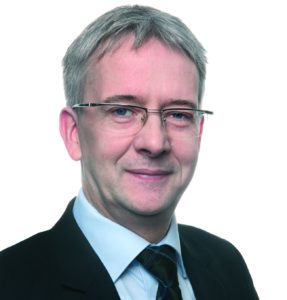Bakkafrost’s Scottish farms on road to recovery as group profits rise

Bakkafrost almost doubled its operating profit during the first three months of this year, with its Scottish farming business showing a big improvement.
Releasing the 2022 Q1 results, the Faroe Islands based salmon farmer announced an EBIT (earnings before interest and taxation) figure of 418 million Danish kroner (£48m), against DKK 244m (£28m) 12 months earlier.
The Faroe Islands farming segment performed particularly well with an operational EBIT of DKK 471m (£54m) while its Scottish farming arm, the Scottish Salmon Company, recorded a loss of DKK 53m (£6m) against a loss of DKK 6m (£690,000) last year.
As reported recently, the Q1 harvest for the Faroe Islands was 3,500 tonnes higher at 17,500 tonnes while Scotland dropped from 7,000 tonnes to 4,000 tonnes.
The full 2022 Faroes harvest is expected to total 68,000 tonnes while Scotland should rise to around 35,000 tonnes.
Two million smolts were transferred in the Faroes, down from 2.3 million in Q1 2021, but the number increased for Scotland – from 1.6 million a year ago to 2.3 million this quarter.
Bakkafrost CEO Regin Jacobsen said that, overall, the company was pleased with the results from the Faroese farming operation which had continued on a trajectory to higher volumes. The biology was good and sea lice volumes low.
Despite disappointing financial results from the Scottish farming operation, Jacobsen said he was pleased to see clear improvement during the period following “challenging biology and high mortality” during the final six months of 2021.
He continued: “At the beginning of Q1 2022, the biology was still negatively affected at a few sites by the gill health issues in the two previous quarters.
“This caused elevated mortality at these sites. The issues reduced during Q1 2022 and in March we had no exceptional mortality, and the Scottish farming operation was profitable again. In this quarter, we also more than doubled our freshwater treatment capacity in Scotland with the introduction of our second large freshwater treatment vessel.
“We are confident, that this will significantly improve our ability to reduce the biological risk. This will be put to the test in the fall when the risk is highest.
“In Q4 2022, we also expect the Applecross 4 expansion to be finalised, which will enable us to be self-sufficient with high-quality smolt of significantly larger size than today. This will be the first major milestone in transforming the Scottish farming operation.”
Jacobsen echoed the concerns of many CEOs when by stressing that the disruption in global supply chains strengthened the need for local sourcing.
“In this respect, Bakkafrost is in a good position as around two-thirds of our sourcing is from local suppliers, and we have good access to locally caught marine raw material for our feed production,” he added.
He said the salmon market has been exceptionally strong so far this year with record high prices, although he expected them to come down in the months ahead.
However, Jacobsen expects prices to remain at a relatively high level due to the tight supply situation.

Regin Jacobsen, CEO, Bakkafrost

